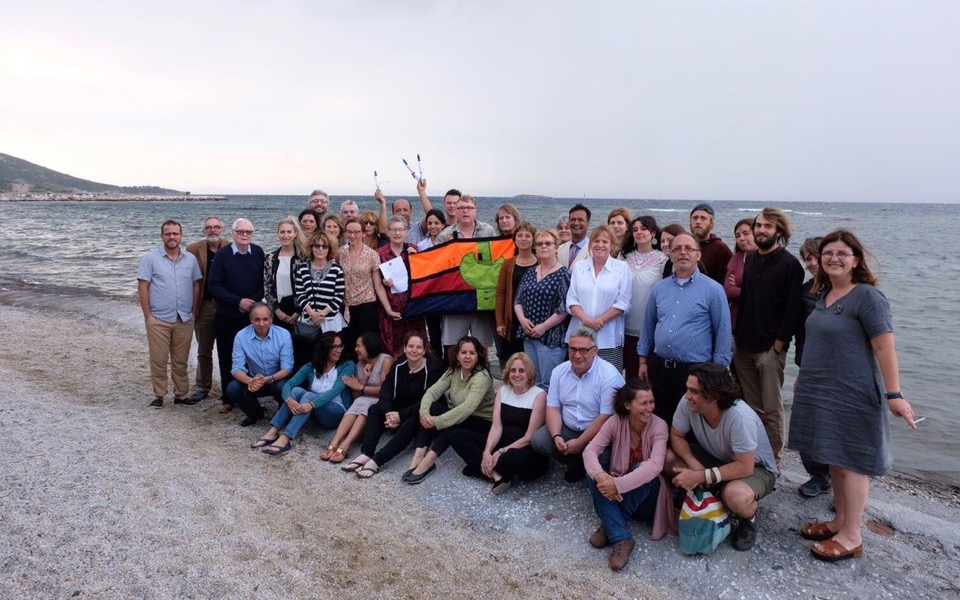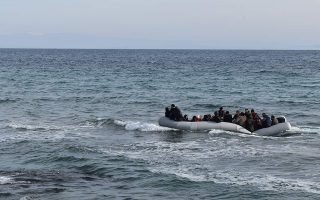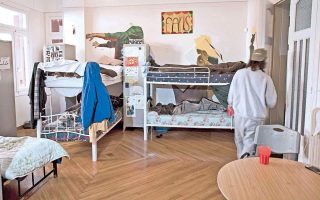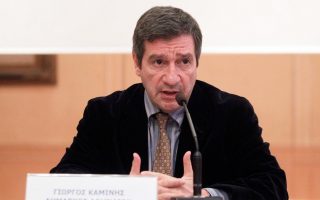Protecting the rights of the refugees who don’t make it

Retired British judge Catriona Jarvis remembers getting a phone call from friends who were holidaying on the Greek island of Icaria in 2014, asking for help when the body of a young man washed up on the beach where they were having a meal at a taverna.
“They asked me if I could find out who he was, and I set to it,” she tells Kathimerini. “With the help of a Greek activist who worked with the families of missing refugees and two medical examiners, we were able, despite the obstacles, to identify him and also get in touch with his family, who requested that his body be sent back home. That wasn’t possible, but at least they know that he is buried in Komotini. It is a great relief.”
The young man was 22, from Syria.
After a more than 20-year career dedicated to human rights and global migration issues, Jarvis explains how she decided to dedicate her retirement to what happens when someone dies or goes missing on the migration trail. The case of the 22-year-old Syrian served as the impetus for her to get involved in Greece, where she works closely with Syd Bolton, a lawyer specializing in human rights and the rights of minors.
“The identification of the dead man and the notification of the family were possible thanks exclusively to the dedication and good will of everyone involved and not because certain set procedures were followed,” says Jarvis, pointing to the absence of such a system in Greece.
“We came up against numerous obstacles over the course of the operation – practical, moral, bureaucratic and even medical issues – which prompted us to look for ways to offer guidance and support to all the services involved,” adds Bolton.
That summer, Jarvis and Bolton went to the eastern Aegean island of Lesvos as volunteers.
“We had a lot of wrecks and a lot of casualties that October, so I arranged to send over a mortuary refrigerator, as the existing infrastructure and the heat made it impossible to keep all the bodies long enough so they could be autopsied,” says Jarvis.
“After the deal between the European Union and Turkey was signed [in 2016] and the refugees became trapped on the islands, they started asking about their legal rights. That’s when we had to become lawyers again,” says Bolton.
In May, the pair drew up a list of standards and guidelines that need to be applied for the families of missing or dead migrants and refugees so that their rights are upheld. Governed by international law, these guidelines are applicable anywhere in the world.
Jarvis and Bolton are also co-conveners of the Mytilene Declaration, which was signed on May 11, following two days of discussions between experts from around the world. The Last Rights news and blog page describes this document as “a landmark in establishing the rights of and duties toward all those who experience suffering because of the death or disappearance of their loved ones as a result of migrant journeys.”
“The dead, the missing and their families are the last cog in the wheel for the authorities. The declaration is an opportunity to tell the United Nations, state mechanisms and the EU that this is an issue that deserves their attention,” says Jarvis.
The initiative already has the support of the UNHCR and the Red Cross, among other international agencies.
Why was it named after Mytilene? “We thought that if we were going to do something for the rights of the missing we should start on Lesvos, the island that so many thousands of refugees want to reach,” she explains.
The bigger aim is to create an independent international mechanism that would be responsible for bringing together all the different elements pertaining to the rights of the families. “It would play a central role in ensuring that everything has been done correctly and that justice has been served,” says Jarvis.
The process on a practical level involves collecting and cross-checking DNA and then either returning the deceased to his or her family or helping them to get visas so they can bury their dead. This part of the process is already being handled by the International Commission on Missing Persons and the International Organization for Migration, but civil society, stresses Jarvis, still has a pivotal role to play as many families distrust official channels and rarely turn to them.





